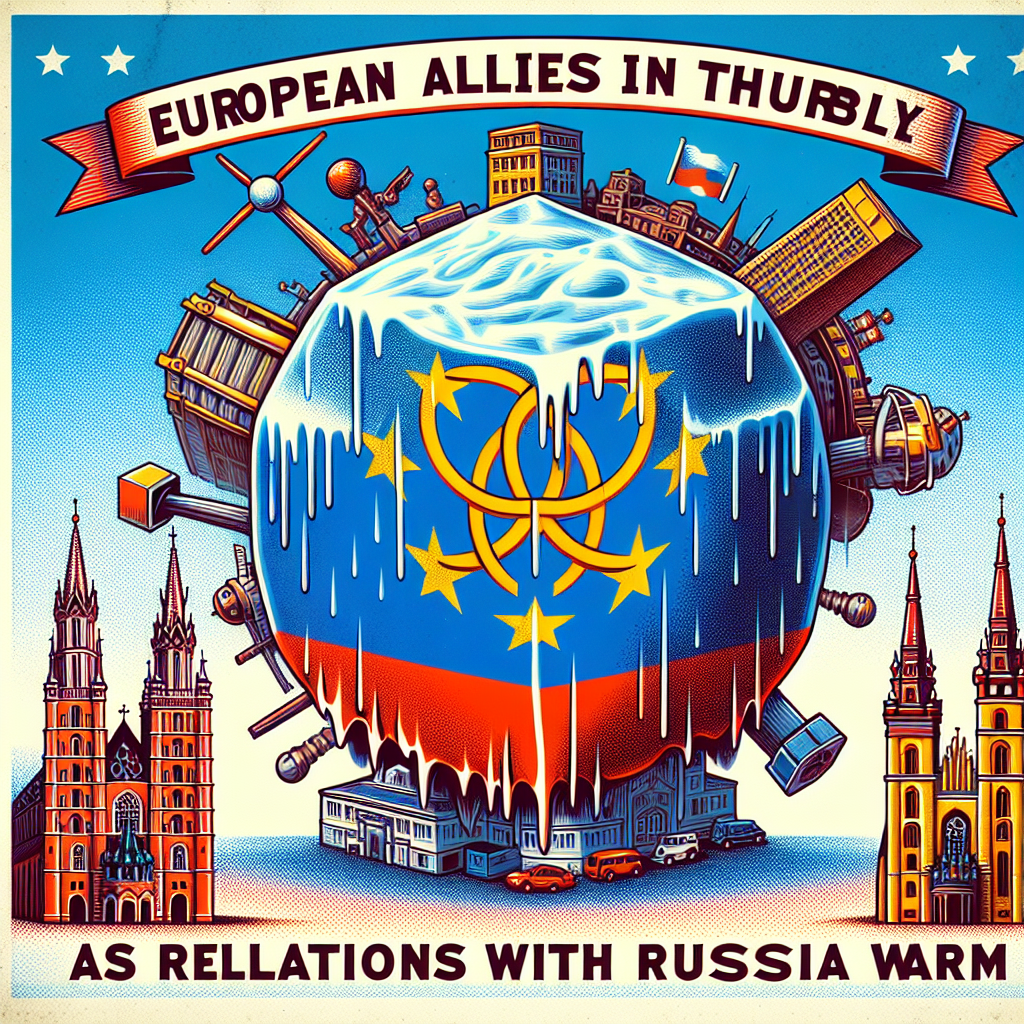In the aftermath of the recent U.S. presidential election, indications are emerging that President-elect Donald Trump may pursue a detente with Russia, particularly concerning the ongoing conflict in Ukraine. Early signs of this shift include Trump’s decision to exclude prior cabinet members Mike Pompeo and Nikki Haley from his new administration; both were known for their hawkish stance against Russia during his previous term. Their absence might suggest a significant deviation from the hardline policies that characterized U.S.-Russia relations in the prior administration, potentially paving the way for a more conciliatory approach under Trump’s leadership.
Additionally, internal messages from Trump’s close circle indicate a shift in U.S. military aid to Ukraine, suggesting that support might be withdrawn. As of yet, Trump has not engaged in formal discussions with Russian President Vladimir Putin, but both leaders have already expressed openness to negotiating a peaceful resolution to the Ukraine conflict. The suggestion of a possible reduction in U.S. aid has sent shockwaves through Europe, as its leaders scramble to reassess their strategies in light of Trump’s election victory. European Commission President Ursula von der Leyen and French President Emmanuel Macron are pushing for a unified European response, signaling their anxiety over the realities of potentially diminished U.S. support.
European leaders had primarily hoped for a Democratic victory, believing that Kamala Harris would maintain steady NATO backing for Ukraine, which has been crucial in the European strategy to counter Russian aggression. Trump’s unexpected rise to president introduces a new dynamic into this equation, creating a precarious situation for European leaders whose political fortunes are tied to the continuation of support for Ukraine. The growing skepticism from Trump regarding the narrative of defending Ukraine may leave European countries facing a daunting question: how to sustain their position in the face of a pivot in U.S. policy.
The implications of Trump’s presidency are particularly pronounced for Britain, where Prime Minister Keir Starmer finds himself navigating between maintaining post-Brexit relations with the EU and managing a potentially hostile relationship with the American president. Starmer’s efforts to repair ties with the EU—and in particular Germany—are now complicated by uncertainty regarding U.S. military and political support in the region. The recent collapse of Chancellor Olaf Scholz’s coalition government underscores the fragile situation in the EU as they face potential fallout from the shift in U.S. policy towards Ukraine.
Trump’s emerging strategy appears to encourage a dialogue with Russia, focusing on key demands such as preventing NATO expansion into Ukraine and recognizing Russian interests in Crimea and the Donbass. This turn towards negotiation, instead of continued military confrontation, may be well-received by certain European leaders—such as Hungary’s Viktor Orban—who view it as an opportunity to de-escalate tensions. However, for NATO countries entrenched in a confrontational stance against Russia, including nations like Britain and Poland, Trump’s choice to shift tactics presents a dilemma as they have already committed significant political and financial resources to the proxy war in Ukraine.
Should Trump decide to follow through with his proposed negotiations, European leaders could find themselves in an untenable position, having invested heavily in a war narrative that may soon be discredited under a different U.S. course. The questions surrounding accountability for the financial and human costs of the conflict loom large, creating anxiety among European leadership. As discussions of potential peace become more prominent, the responses of these leaders will reflect not only their political strategies but also their underlying stability in the wake of a monumental shift in U.S. foreign policy.

